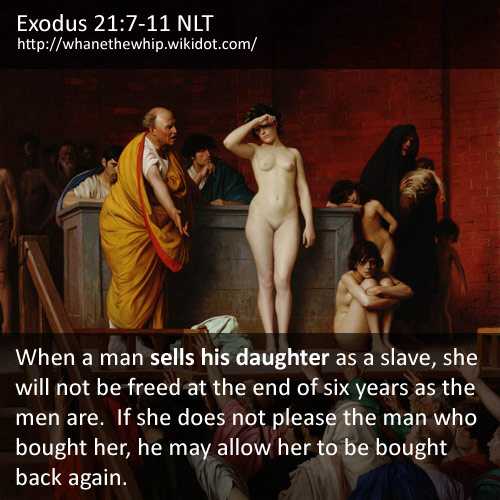https://www.thereligionofpeace.com/pages/quran/muhammads-sex-life.aspx
Muhammad's sexual antics are an embarrassment to those Muslims who are aware of the truth. This is particularly so with their prophet's consummation of his marriage to Aisha when she was only nine years of age. The thought of a 53-year-old man sleeping and bathing with a young girl is intensely unpleasant and it reflects the disgusting character of a sexual glutton rather than a holy man. Critics even allege that Muhammad was a pedophile.
Some Muslims respond by denying the hadith itself, which is a mistake. The accounts of Muhammad sleeping with a 9-year-old are no less reliable than those on which the five pillars of Islam are based. They have been an accepted part of tradition and did not become controversial until social mores began to change with the modern age.
The charge of pedophilia may or may not be true, depending on how it is defined. Technically, Muhammad did have a sexual relationship with a child, but Aisha was also the youngest of his twelve wives. Zaynab was in her 30's when she attracted the unquenchable lust of the prophet. We don't know the age of Muhammad's sex slaves. They may or may not have been as young as Aisha, but there is no point in speculating.
Prior to the medical advances of the last century, marriage occurred at a much younger age across all societies. When life expectancy was in the mid 20's (or lower), it made no sense to wait until 19 to start having children; otherwise, one ran the risk of not being around to raise them. In short, childhood as we know it was abbreviated by the reality of the times.
Another strong piece of evidence against Muhammad being a pedophile is that, according to the same Hadith, he waited from the time Aisha was six (when the marriage ceremony took place) until she turned nine to consummate the relationship. Although the text doesn't say why, in all probability it was because he was waiting for her to begin menstrual cycles - thus entering into "womanhood." It is unlikely that a pedophile would be concerned about this.
On the other hand, Muhammad passed down revelations from Allah that clearly condoned sleeping with underage girls, even by the standard of puberty. Quran (65:4) relates rules for divorce, one of them being that a waiting period of three months is established to determine that the woman is not pregnant. But the same rule applies to "those too who have not had their courses," meaning girls who have not begun to menstruate. (In our opinion, this would have been a great time for Allah to have said something else instead like, "a real man is one who marries an actual, grown woman"... but that's just us).
Thanks to Muhammad's extremely poor judgment (at best) and explicit approval of pedophilia, sex with children became deeply ingrained in the Islamic culture. For many centuries, Muslim armies would purge Christian and Hindu peasant villages of their menfolk and send the women and children to harems and the thriving child sex slave markets deep in the Islamic world.
When it comes to child marriage, contemporary clerics warn fellow Muslims against succumbing to the disapproval of the Christian West: "It behooves those who call for setting a minimum age for marriage to fear Allah and not contradict his Sharia, or try to legislate things Allah did not permit. For laws are Allah’s province; and legislation is his excusive right, to be shared by none other. And among these are the rules governing marriage.”
The Ayatollah Khomeini, who married a 12-year-old girl, even gave his consent to using infants for sexual pleasure (although warning against full penetration until the baby is a few years older). In April, 2010, a 13-year-old Yemeni girl died from injuries suffered to her womb during "intercourse".
Some clerics propose relative mercy on underage girls by endorsing a process known as "thighing" (also known as "child molestation" in the West). According to a recent fatwa (number 23672), an imam answers this question: "My parents married me to a young girl who hasn't yet reached puberty. How can I enjoy her sexually?" by telling the 'man' that he may "hug her, kiss her, and ejaculate between her legs."
A prominent member of Saudi Arabia's highest religious council said in 2012 that girls can be married "even if they are in the cradle," then went on to explain that intercourse may occur whenever "they are capable of being placed beneath and bearing the weight of the man."
Muhammad's penchant for girls so much younger than him was such that at least two of his father-in-laws (Abu Bakr and Omar, the first two Caliphs) were actually younger than him as well. This disappointing pattern is very much at odds with the sort of sexual discipline that one might expect of a true "prophet of God."
Muhammad's pursuit of Zaynab, the wife of his adopted son is almost as tough to stomach. This is because it not only raises a similar question of moral character, but also casts suspicion on whether his so-called prophecies were really divine revelation or dictates of personal convenience. According to one biographer, even Aisha appears to be somewhat doubtful of Muhammad's claim that Allah commanded him to marry Zaynab, wryly remarking, "Truly Allah seems to be very quick in fulfilling your prayers."
So controversial was Muhammad's desire to marry his adopted son's wife that he had to justify it with a stern pronouncement from Allah on the very institution of adoption, which has had tragic consequences to this day. Verses 33:4-5 are widely interpreted to imply that Islam is against adoption, meaning that an untold number of children in the Islamic world have been needlessly orphaned - all because Muhammad's lustful desires for a married woman went beyond even what the other six wives that he possessed at the time and a multitude of slaves could satisfy.
Some Muslims deny that Muhammad was married to more than four women at a time, merely on the basis that the Quran only gives permission for marrying four. Unfortunately, Muslims historians disagree. Only one of Muhammad's last eleven wives died before him (Zaynab bint Khuzayma). The rest outlived him by many years.
Muhammad forbade his ten widows from remarrying, even making sure that this "divine" order was forever preserved in the eternal word of Allah - Quran (33:53). To add insult to injury, they were all summarily disinherited from Muhammad's estate by his successor (courtesy of another divine order "given" to Abu Bakr from Allah).
In summary, Islam's holiest texts portray Muhammad not as a perfect man, but as a sexual hedonist. Not only did he become fat from indulging in food, but his pursuit of sex was no less gluttonous. On top of it all, he used personal "revelations" from Allah to justify his debauchery to the gullible masses which, to this day, continue to be venerated and memorized as if they are the holiest of utterances.







